Image
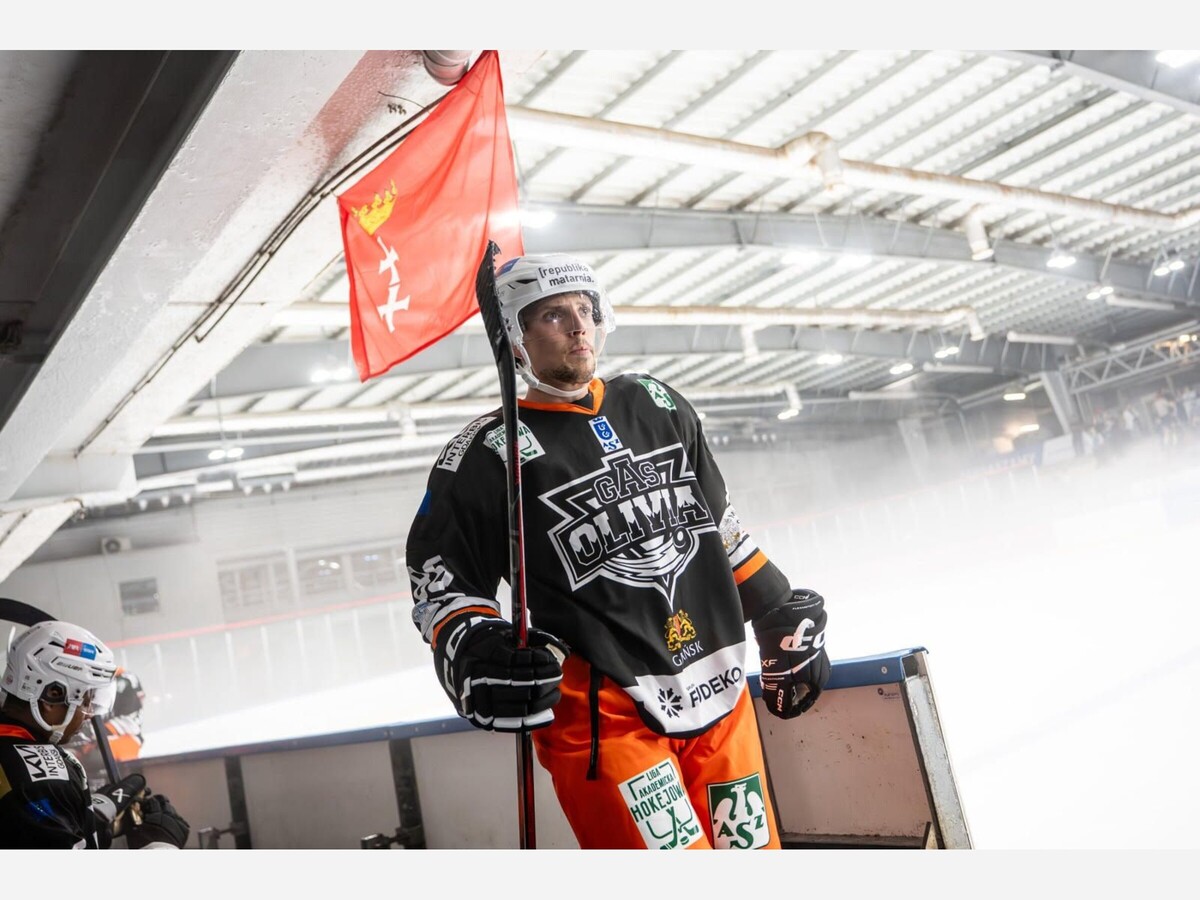

By Tom Akaolisa | MinneapoliMedia
Minnesota native Jackson Fuller has been making waves overseas with Fudeko GAS Gdańsk, competing in Poland’s MHL (Polish Hockey League). From collegiate ice in Crookston to historic streets in Gdańsk, Fuller’s journey is one of growth, cultural discovery, and relentless passion for the game.
In this exclusive MinneapoliMedia interview, Fuller opens up about life abroad, hockey in Poland, and how adapting to a new environment is shaping him both as an athlete and a person.
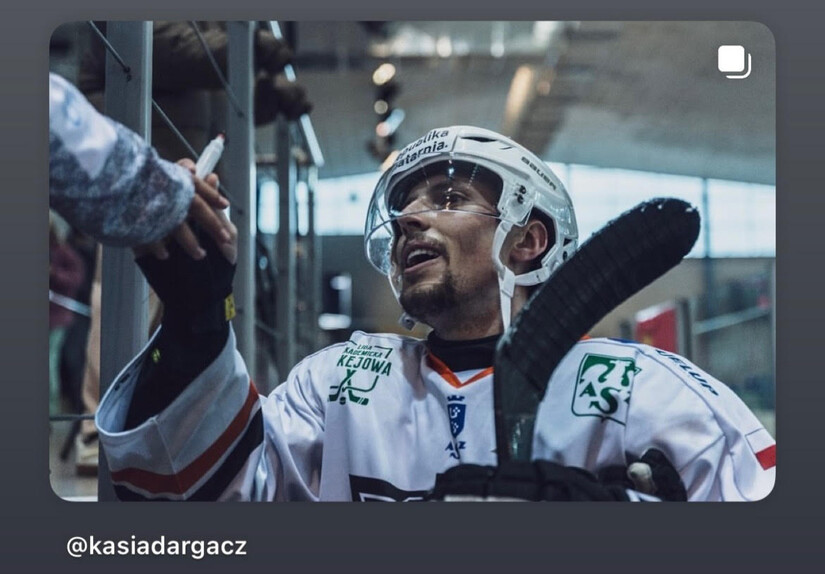
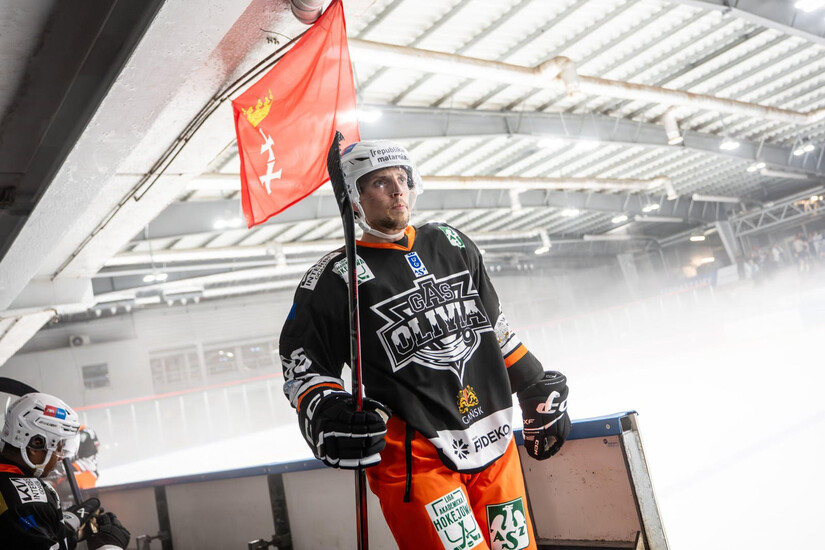
Jackson Fuller: Thanks, Tom—it’s great to catch up. Things have been really good here. I just finished a workout before our call, so excuse the post-gym look. [laughs] The time difference takes some getting used to—sometimes I’m waking up while everyone back home is fast asleep—but it’s been a great experience so far.
Life here feels different but in a good way. I miss home, of course, but I’m grateful for the chance to keep playing hockey and to experience something completely new.
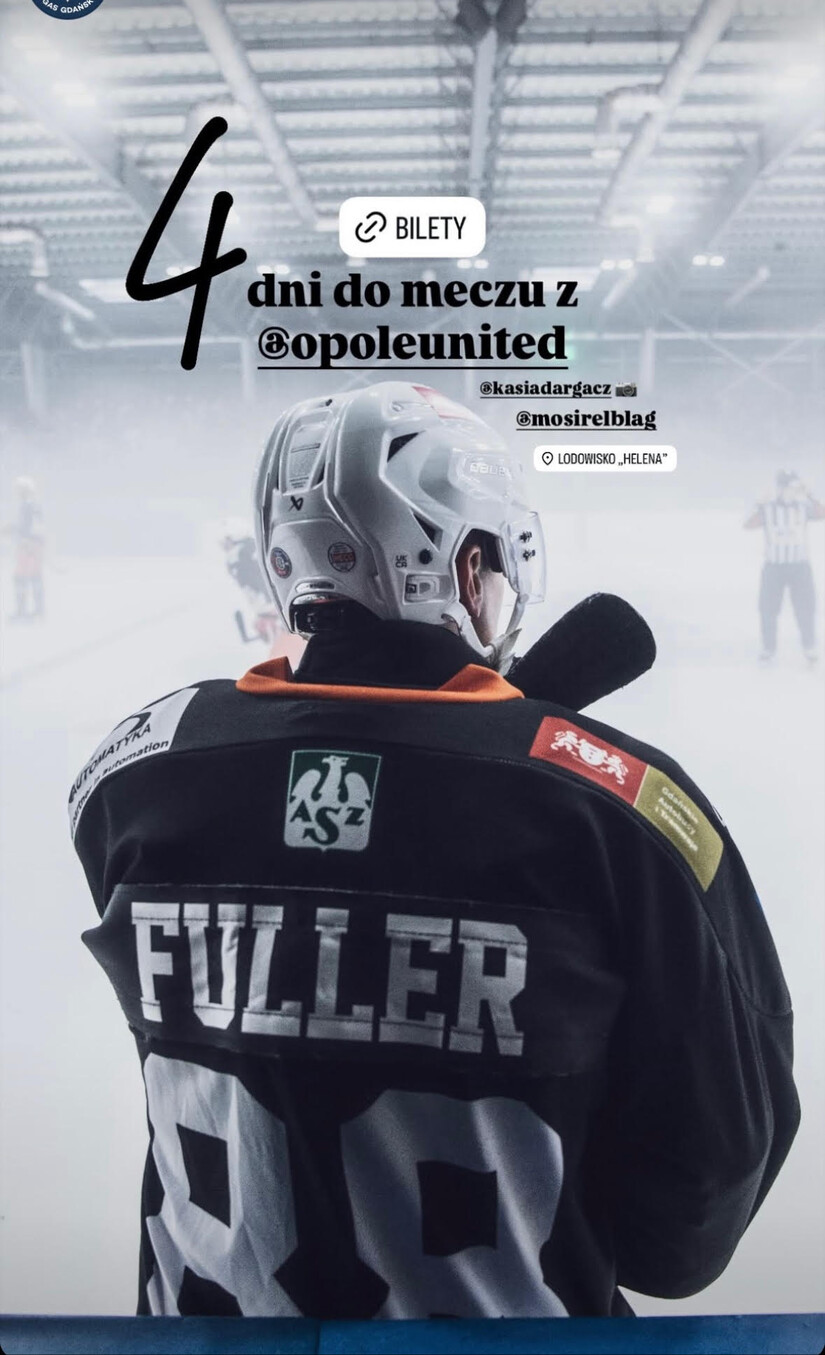
Jackson: It was definitely more of an adjustment than I expected. I’d say I’m still adjusting, honestly—but that’s part of the growth.
The biggest challenge has been the language barrier. I’m learning Polish little by little—trying to pick up a few new words every day—but it’s tough. Google Translate is a lifesaver. [laughs]
Our coach doesn’t speak English, so during practice or in the locker room, everything’s in Polish. I rely on teammates like Igor, who speaks great English, to translate. But hockey is its own language—you chase the puck, you find rhythm, and it works.
Off the ice, it’s been about adapting to the culture. I live with three other players—one from Canada and two from Slovakia. We’re close to the rink and gym, and we walk everywhere. Poland’s very pedestrian-friendly, so I’m getting my steps in every day. My calves are going to be huge by the end of the season. [laughs]
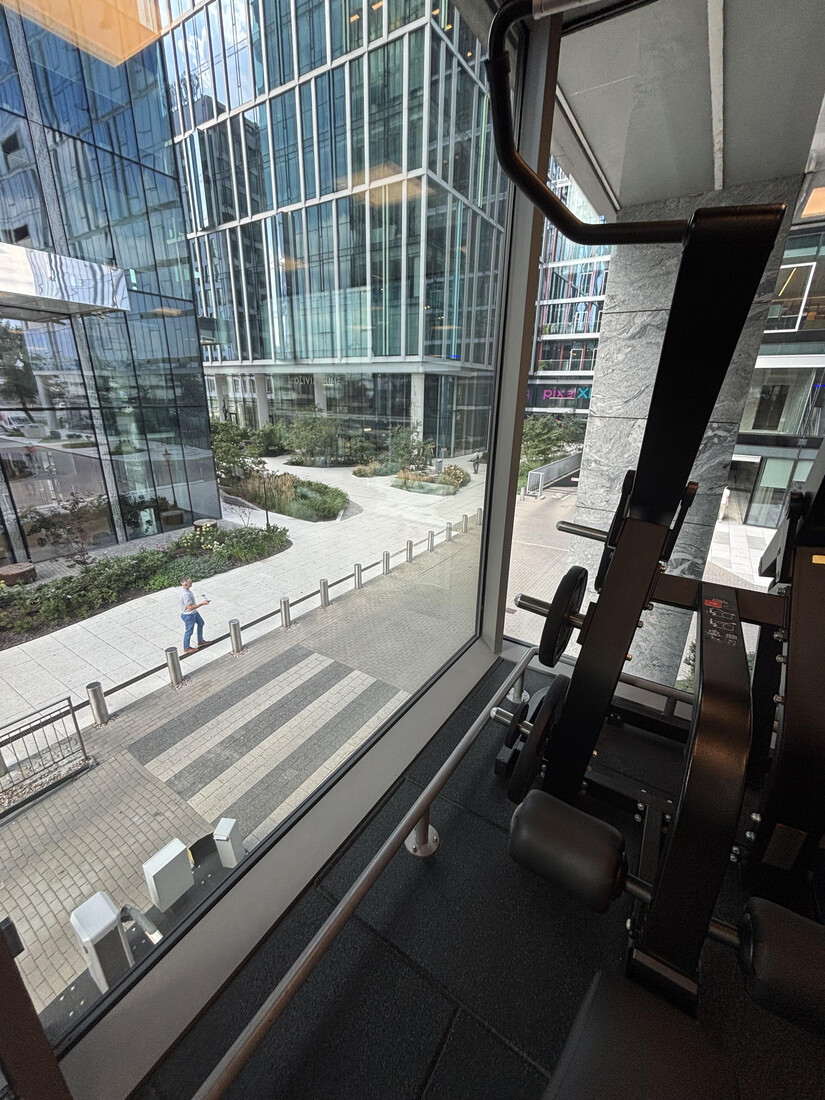
Jackson: Gdańsk is stunning—really, one of the cleanest and safest cities I’ve ever been in. You can walk around at 1 or 2 a.m. and see families, couples, and people walking their dogs. There’s a real sense of calm and safety here.
The Old Town is incredible—Renaissance-style buildings, cobblestone streets, and this vibrant port life. It’s also the amber capital of the world, which is wild. I’ve visited the Amber Museum, and I’m planning to check out the World War II Museum soon.
We did a boat ride recently past the exact location where World War II began—it’s surreal to live and play in a place with that kind of history.
As for the people—Poles are very kind, but not big on small talk like Americans. It’s more businesslike at first. Some Americans might mistake that for coldness, but really, it’s just a different rhythm. Once you build trust, they open up, and they’re incredibly warm and genuine.
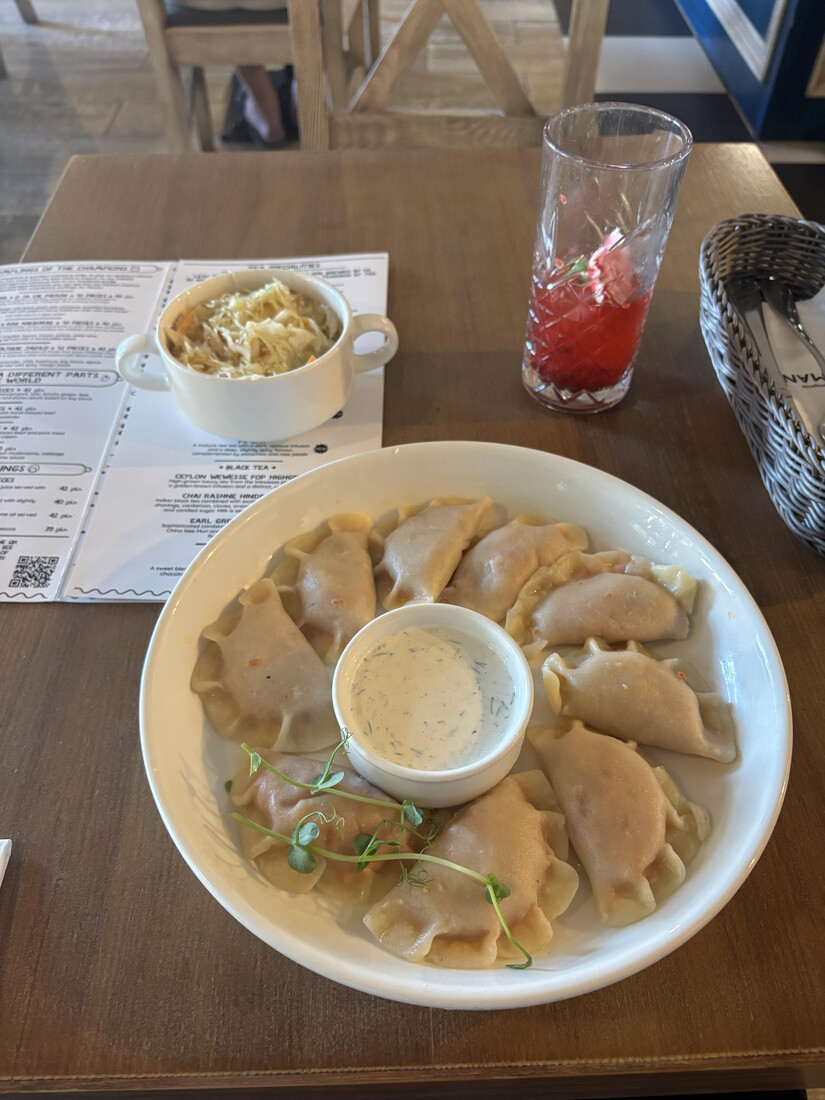
Jackson: Oh, man, the food is so good. The pierogies here are unreal. Our team captain’s wife actually owns one of the most popular pierogi restaurants in the Tri-City area—Mandu Pierogi. Highly recommend it if anyone’s ever in Gdańsk.
Poles also love soup—like, seriously love it. I’ve learned how to say “To zupa jest smaczna!” (“This soup is delicious!”). [laughs] Schnitzel is another favorite, and I’ve discovered some amazing gingerbread in Toruń, a few hours away.
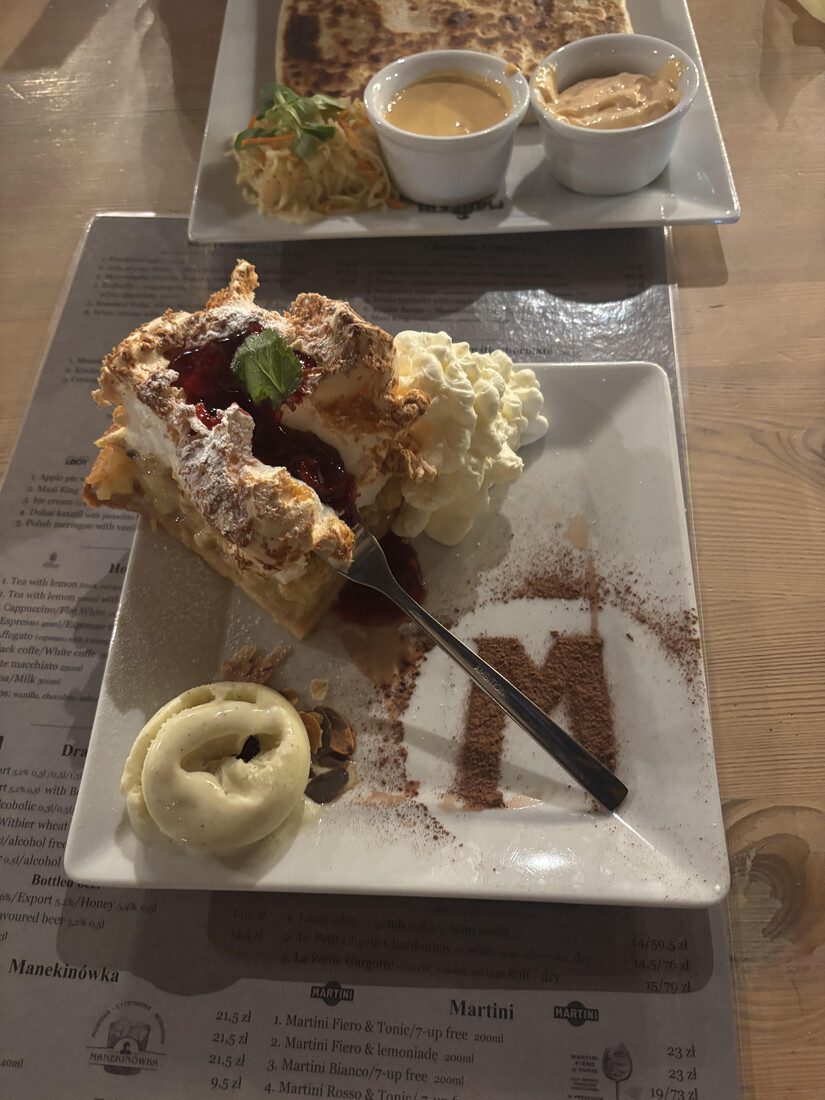
And they put pickles in everything—soups, salads, drinks—you name it. It’s great, though. The team provides meals through a local sponsor, so every day we get to try new traditional dishes. Every now and then they’ll throw in a McDonald’s meal for us foreigners, which is a fun treat.
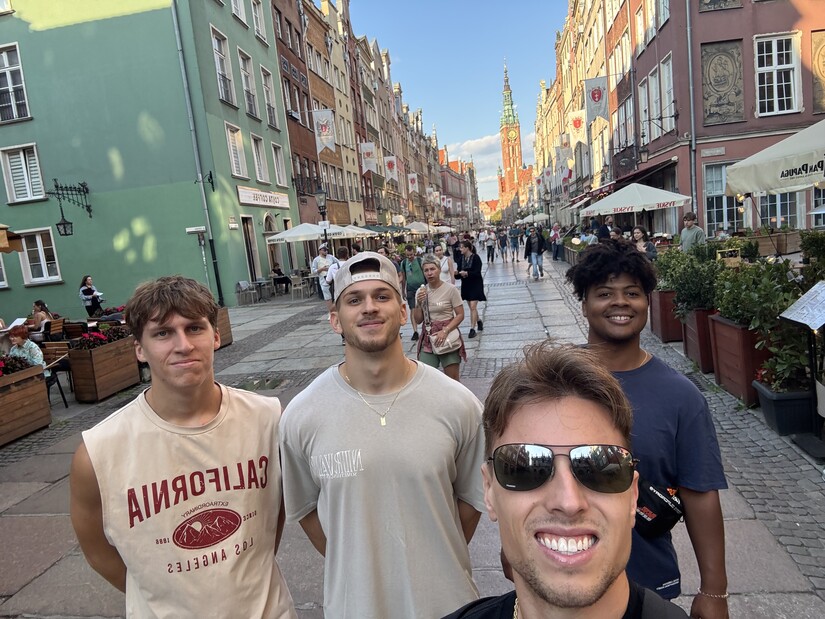
Jackson: It’s been great. At first, it was a little different culturally—guys here don’t always open up right away. When I first met my Slovakian roommates, I skated up, tapped them on the shin pads, and introduced myself. They looked a bit surprised—apparently, people usually don’t do that unless they need something. [laughs]
But now, we’re close. The guys gave me a few nicknames—one is “Jasiek,” which is Polish for “Jack.” Another one in our team group chat roughly translates to “Son of Jack, Speedster on Ice.”
We’ve got great leadership, too. Our captain, Szymon Marczak, has played in national tournaments and Olympic qualifiers. Another teammate, Igor Smal, is even
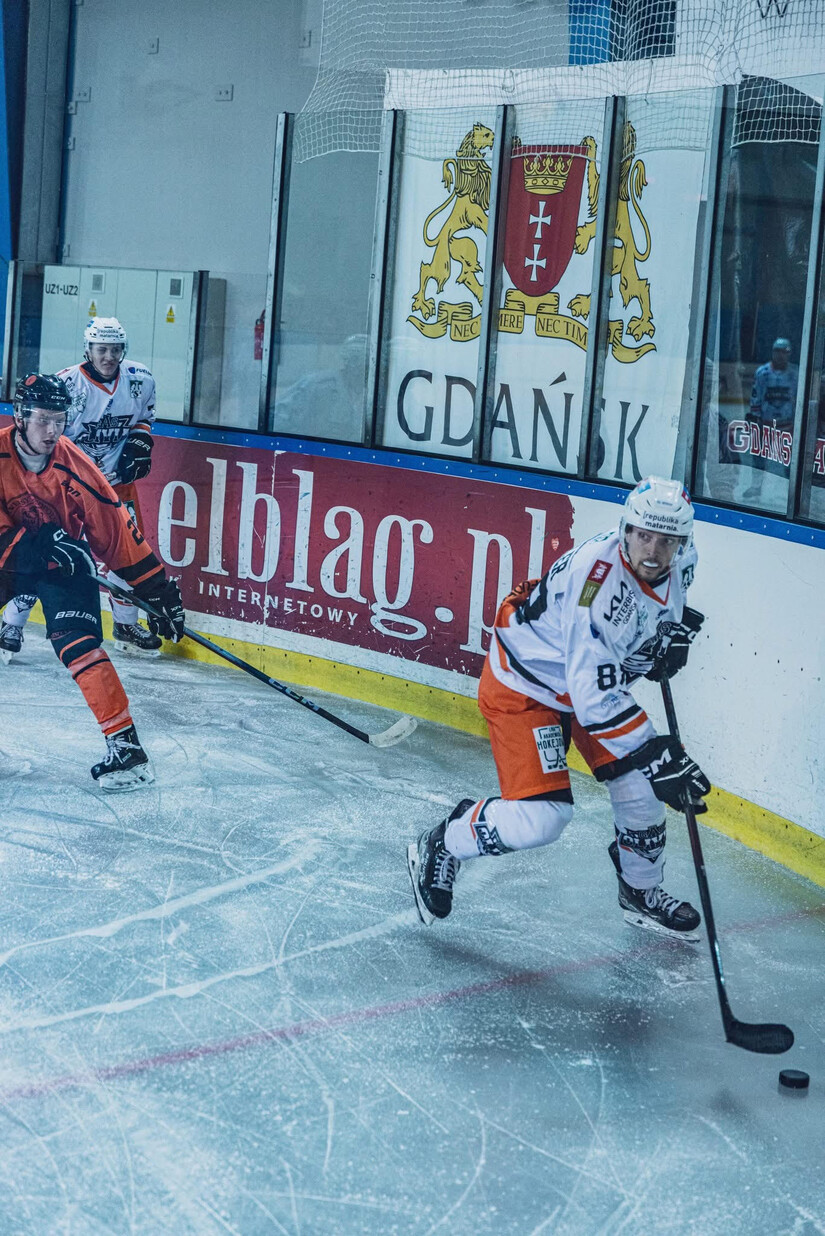
featured in the NHL video game, which is awesome. We’re currently leading the league, and that speaks to the strong culture in our locker room—no egos, no toxicity, just unity and hard work.
Jackson: It’s faster, bigger, and more physical. The rinks here are mostly Olympic-sized, so there’s more room on the ice. Players are also stronger overall—Poland’s a very fitness-oriented country.
The effort level stands out. Every player, even the fourth-liners, plays like it’s the Stanley Cup Final. There’s no coasting, no easy shifts.
If there’s one difference, I’d say skating ability varies more here. A lot of rinks in Poland close in the summer, so many players didn’t have the same year-round ice time growing up. That’s something that gives North American players like me a slight edge in skating and edge work.
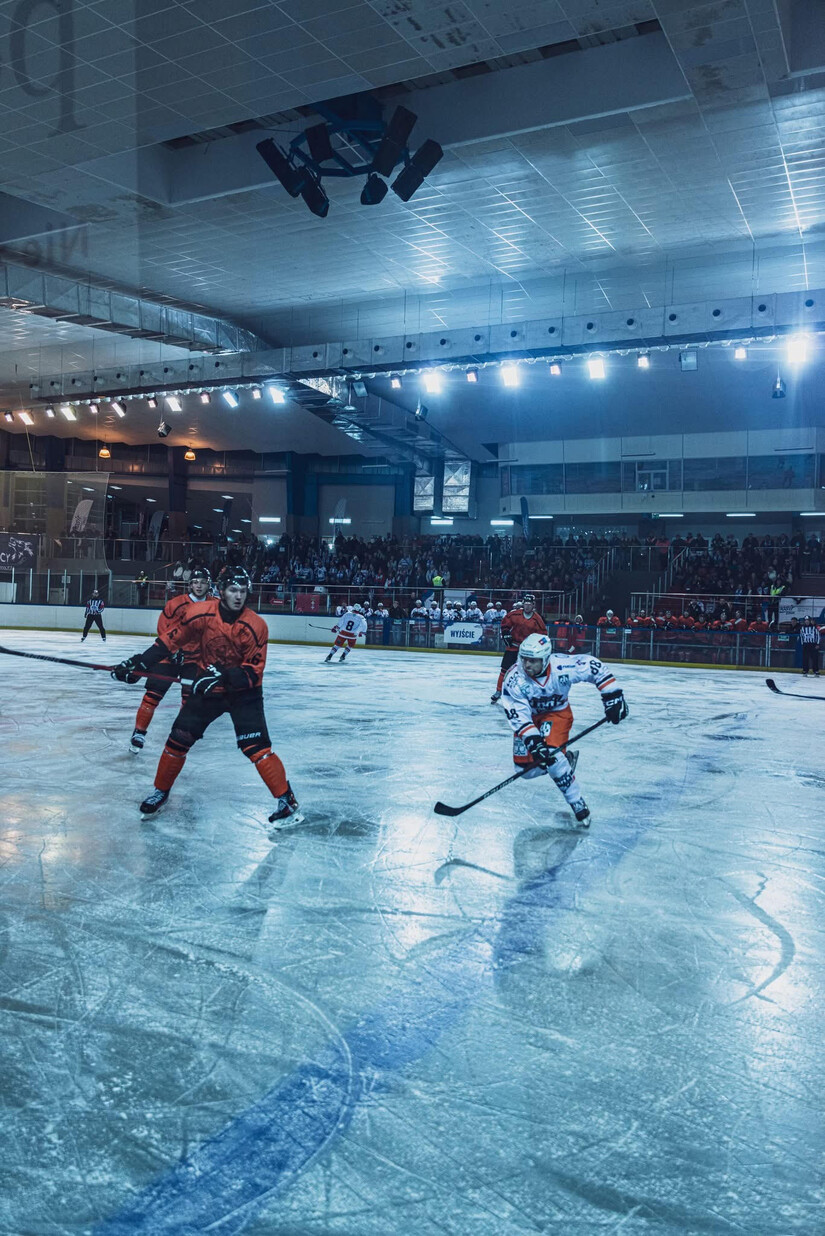
Jackson: It starts with leadership. Our coach is a legend in Poland—he played in the top Polish and Czech leagues and is sometimes called “the Polish Gretzky.” That experience shows.
We’ve got a balanced roster with hometown veterans and international players. Everyone knows their role, works hard, and respects the game. No one’s staying out late or slacking off—we’re all locked in. It’s a winning culture, and that’s translating directly onto the ice.
Jackson: I’m really happy with where I’m at. I’m playing on the second line, getting minutes on the power play and penalty kill, and often finishing games when we’re defending a lead—which shows the coach trusts me.
I’m still adapting to the team systems. Some habits from college carry over, but the tactical details here are different. I’ve had to rewire a few instincts, like positioning as a center during forechecks. But that’s part of the fun—learning and evolving as a player.
Jackson: The toughest part? Honestly—going from being somebody to being nobody. Back home, I had a whole support system. I was an RA, student leader, involved in clubs. Here, nobody knows me. It’s humbling. But it’s also refreshing—it’s a reset, a chance to prove yourself again.
The highlight has been building community with my teammates despite the language and cultural barriers. Sharing laughs, getting nicknames, and feeling like part of a new family—that’s incredibly rewarding.
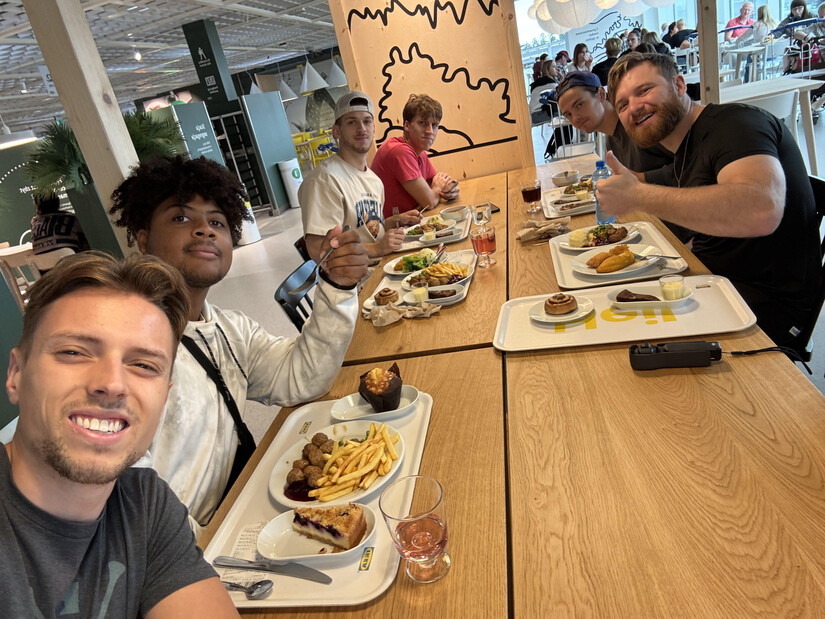
Jackson: Amazing! A week after we arrived, the team held a meet-and-greet with young players from the club’s youth teams. We got on stage, introduced ourselves, and I greeted everyone with “Dzień dobry!” (“Good afternoon”). The crowd went wild over just that one phrase. [laughs]
The fans are passionate. One supporter even messaged me after a game saying they loved a photo of me walking off the ice with the Polish flag behind me—it’s moments like that that remind me we’re building something special here.
Jackson: I’ve learned to never judge a book by its cover—especially in hockey. The best players here don’t always look like what Americans expect.
I’ve also learned humility—how to be a guest in someone else’s country, to observe, listen, and adapt. It’s made me more patient, more grateful, and more globally aware.
And funnily enough, it’s made me appreciate the U.S. more. You don’t realize how much American culture is everywhere until you hear Lady Gaga playing in a Polish McDonald’s after a game. [laughs]
Jackson: The big one—win the league. That’s why I’m here. I came close in college, and I want that championship badly.
Personally, I want to keep earning my minutes, contributing to team success, and growing as both a player and a person.
Beyond that, I’m also applying to medical school—so between hockey and studying, it’s a full schedule. Whatever happens, I’m just trying to make the most of every opportunity that comes my way.
Jackson: Thanks, Tom. Always great to catch up and share what’s going on. Tell everyone back home I say hi—and that I’m doing my best to make Minnesota proud out here.